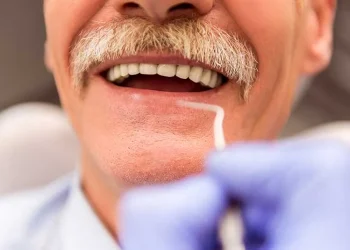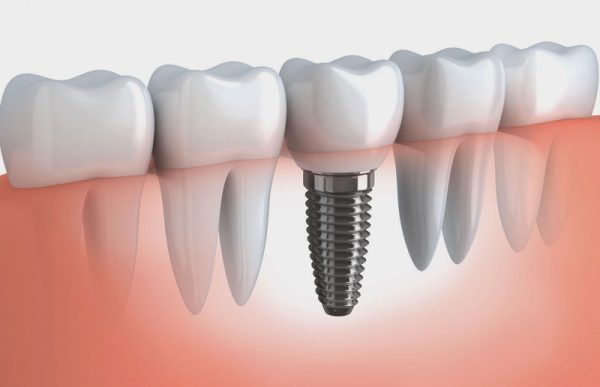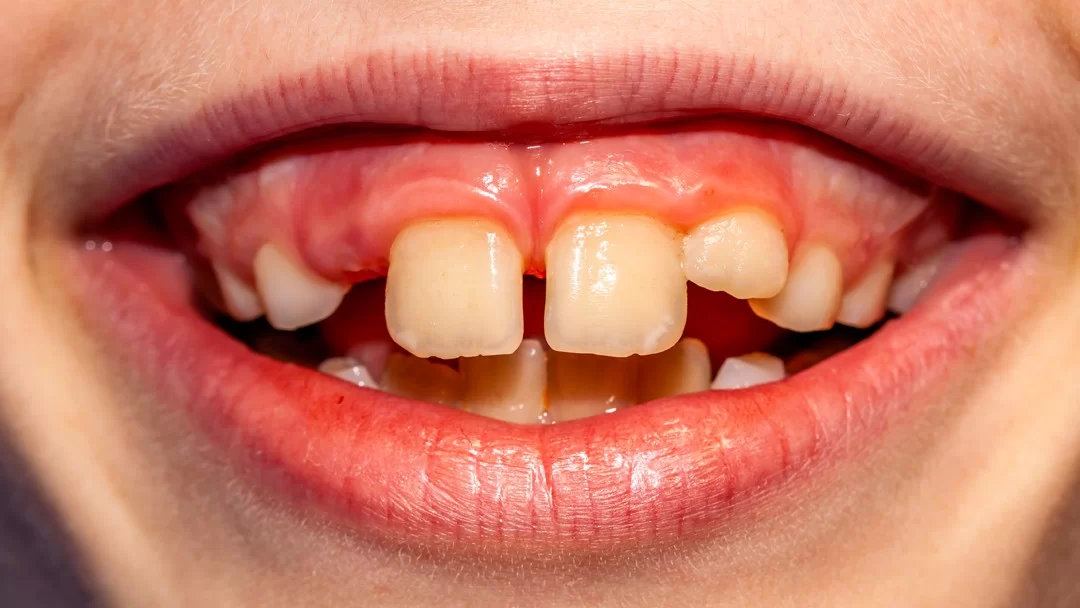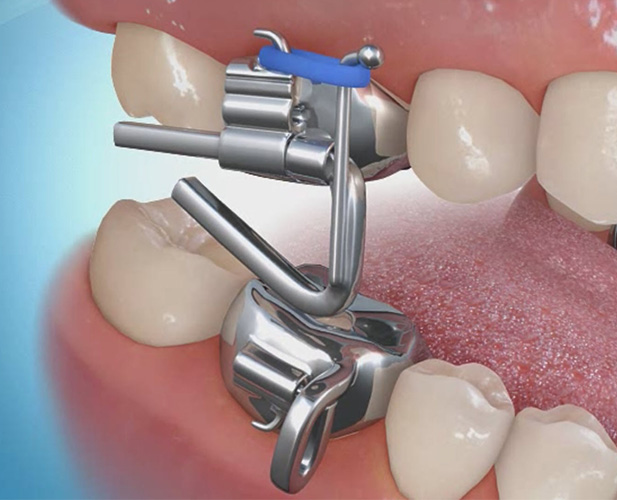Porcelain crowns are a popular solution for damaged or decayed teeth. They can help restore the appearance and function of your teeth, and are often recommended for molars, which are the back teeth used for chewing. However, before getting porcelain crowns on your molars, there are a few important things you should know. In this blog post, we’ll discuss five key things to keep in mind before undergoing this procedure.
Contents
The Process of Getting Porcelain Crowns on Molars
The process of getting porcelain crowns on your molars is quite a detailed and elaborate one that spans over two visits to the dentist. During the first visit, the dentist will meticulously prepare the affected tooth by removing any decay, cleaning it thoroughly and shaping it to fit the crown. Then, an impression of the tooth will be taken and sent to a dental laboratory where the crown will be fabricated. The process of fabricating the crown is a very intricate and delicate one that requires a great deal of skill and expertise. Once the crown is ready, the dentist will place a temporary crown on the tooth to protect it until the permanent one is ready.
At the second visit, after the temporary crown is removed, the permanent one will be placed onto the tooth. The dentist will ensure that the crown fits perfectly onto the tooth and that the patient is comfortable with it. They will also take the time to explain how to care for the new crown and what to expect in the days and weeks following the procedure. Overall, getting porcelain crowns on your molars is a complex and comprehensive process that requires the utmost attention and care from both the patient and the dentist.
:max_bytes(150000):strip_icc()/numbing-the-tooth-in-a-dental-crown-procedure-1059036_final-788dfa05acf24255aa0d406f45df1b31.png)
When Should You Get Porcelain Crowns on Molars?
Porcelain Crowns on Severely Decayed or Damaged Molars
If you have a molar with extensive damage or decay, a filling may not be enough to restore its function and appearance. In fact, the damage done to the tooth may be so severe that a filling won’t be able to help it in any way, which may lead to further complications down the line. This is why it’s crucial to consider alternative treatments, such as a porcelain crown, which can provide the tooth with the strength and protection it needs to function properly. Additionally, a porcelain crown can also improve the appearance of the affected tooth, restoring it to its original shape and size. To determine the best course of action for your specific case, your dentist will evaluate the severity of the damage and take into account your individual needs and preferences. Based on this assessment, they will recommend the most suitable treatment option, which may include a porcelain crown. With proper care and maintenance, a porcelain crown can last for many years, ensuring the long-term health and functionality of your tooth.
Porcelain Crowns After Root Canal Treatment
Root canal treatment is a dental procedure that is performed to save a tooth that has severe decay or infection. During the procedure, the dentist removes the infected or damaged pulp from the tooth and cleans out the root canals. After the root canal treatment, the tooth may become weak and brittle, making it more prone to cracking or fracturing. However, this can be prevented by placing a porcelain crown on the tooth. A porcelain crown is a custom-made cap that is placed over the tooth to provide it with the necessary strength and protection. It is designed to blend in seamlessly with the surrounding teeth and mimic their natural appearance. Your dentist will carefully evaluate the condition of the tooth and recommend the best course of action to restore your oral health and prevent further damage or decay.
Porcelain Crowns on Molars with Enamel Erosion
If you have a molar with enamel erosion, a porcelain crown may be a good option to restore the tooth’s appearance and function. Enamel erosion can be caused by factors such as acid reflux, frequent consumption of acidic foods and drinks, or tooth grinding. When the enamel is eroded, the underlying dentin is exposed, which can cause sensitivity, discoloration, and even decay.
A porcelain crown can protect the tooth from further damage and provide it with the necessary strength and protection. It can also improve the tooth’s appearance, restoring its natural look and feel. Your dentist will evaluate the extent of the enamel erosion and recommend the best course of action for your specific case. Porcelain crowns are a durable and long-lasting solution for molars with enamel erosion, helping to ensure the long-term health and functionality of your teeth.
It’s important to note that proper oral hygiene and regular dental checkups are crucial for maintaining the health and longevity of your porcelain crowns. With proper care and maintenance, a porcelain crown can last for many years, providing a strong and natural-looking solution to enamel erosion.
Porcelain Crowns For Cosmetic Purposes
Porcelain crowns can also be used for cosmetic purposes, such as to correct the discoloration or misshapenness of your teeth. With porcelain crowns, you can enhance the beauty of your teeth while simultaneously improving their durability and functionality.
If you have a tooth that is significantly discolored or misshapen, porcelain crowns may be a good solution for you. A dental professional can evaluate the overall condition of your molars and recommend the best course of action. Porcelain crowns are a long-lasting and natural-looking dental treatment that can significantly enhance your smile and give you the confidence you deserve.
The Cost of Porcelain Crowns
The cost of porcelain crowns on molars can vary depending on several factors, including the location of the dental practice, the complexity of the procedure, and your dental insurance coverage. Generally, porcelain crowns are more expensive than other options like metal or resin crowns because of their natural appearance and durability.
The Risks of Getting Porcelain Crowns on Molars
Porcelain crowns are a popular and reliable option for repairing damaged teeth. While the procedure is generally considered safe and effective, it’s important to be aware of the potential risks and complications associated with getting a porcelain crown.
One possible risk is sensitivity, discomfort, or pain after the procedure. This is usually temporary and can be managed with over-the-counter pain medications or prescribed painkillers. In some cases, however, the sensitivity or pain may persist and require further treatment.
Another potential risk is damage to the nerve or pulp of the tooth during the crown placement process. This can cause sensitivity or pain and may require additional treatment such as a root canal.
In rare cases, the crown may become loose or fall off, which can be a frustrating and inconvenient problem. However, it’s important to note that this is not a common occurrence and can often be prevented by following good oral hygiene practices and avoiding certain foods that can damage the crown.
If you’re considering getting a porcelain crown, it’s important to discuss the potential risks and complications with your dentist before making a final decision. Your dentist can help you weigh the pros and cons of this procedure and determine whether it’s the right choice for your individual needs and circumstances.
A Prestigious Address for Porcelain Crowns on Molars
Home Dental is a prestigious address for those seeking porcelain crowns on molars. The team of medical professionals at Home Dental is always committed to providing the best possible care to their patients. They are dedicated to ensuring that each patient is comfortable throughout their treatment and that they leave the clinic with a beautiful smile.
The team of medical professionals at Home Dental is also known for their gentle approach, which helps to ease the anxiety and fear that many people experience when visiting the dentist. They take the time to explain each step of the procedure to their patients, so that they can feel comfortable and confident in their decision to undergo treatment.
At Home Dental, the medical team understands that getting porcelain crowns on molars is a complex and comprehensive process that requires the utmost attention and care from both the patient and the dentist. They are committed to ensuring that each patient receives the highest quality care throughout the entire process, from the initial consultation to the final placement of the crown.
Dr. Nguyen Anh Ngoc
- Specialist in Department of Oral and Maxillofacial Surgery at the The University Medical Center Hamburg-Eppendorf (UKE)
- Cosmetic Restoration Specialist.
- Having participated in many advanced dental training courses in European countries.
Dr. Vu Duong Thanh
- Graduated from Faculty of Odonto-Stomatology at Hanoi Medical University
- Cosmetic Restoration Specialist
- Smile Design Specialist
- Participating in intensive training courses on oral and maxillofacial dentistry domestically and internationally
Getting porcelain crowns on your molars can be a great way to restore the appearance and function of your teeth. However, it’s important to keep these five things in mind before undergoing the procedure. By understanding the process, lifespan, cost, and risks of porcelain crowns, you can make an informed decision and ensure the best possible outcome for your dental health.














